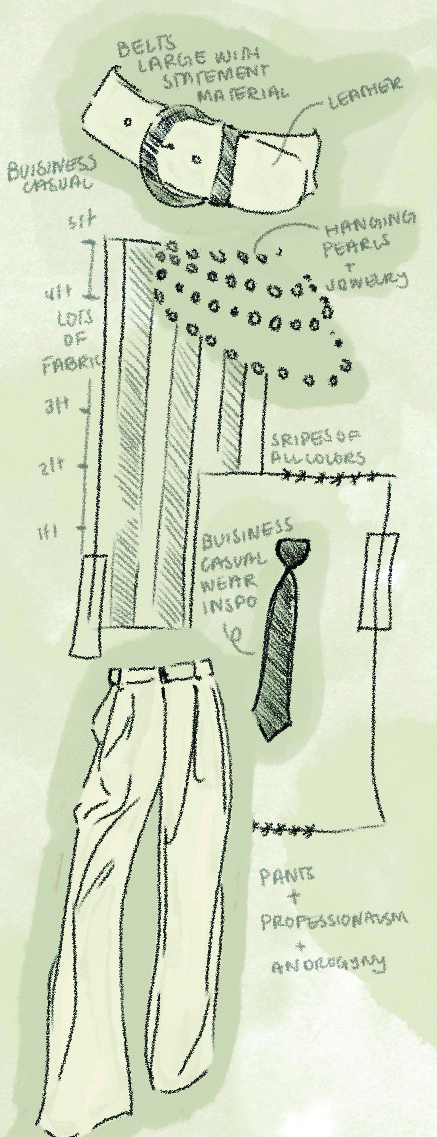
By: Annabelle ’15, Haley ’15 and Cameron ’15
As American high school students brace themselves for the SAT or the American College Test (ACT), their peers around the world prepare for varied international exams, such as the Japanese National Center Test for University Admissions or the German Arbitur. These standardized tests demand varied academic skills and have distinct impacts on students’ futures. The disparate testing styles displayed around the world are indicative of broader trends in international education: countries have different expectations for the duration, quality, and rigor of schooling.
These contrasting methods have sparked an international debate about how to best prepare students for the workplace. For example, American academics are often described as flexible because students are sometimes permitted to choose their own courses, but some critics suggest that this lack of standardization disadvantages some students. Similarly, curricula in Japan and Germany demand more supplemental work outside of school hours, but some experts suggest that strenuous academic demands have had detrimental effects on students’ emotional and intellectual well-being.
What differentiates an American education from comparable international educational systems? How do different countries approach preparation for college and, eventually, for the work force? What effects do these diverse methods have on students’ personalities and learning styles?
COMPARING EDUCATIONAL PATHS
American students progress through preschool, elementary school, middle school, high school, and often college, a process that can take 15 years to complete. Though all education systems in developed countries share similar principles, such as required schooling for children up to a certain age, countries such as Japan, Germany, and France have each adopted different approaches to education.
In Japan, students are required to attend school for nine years, until the end of junior high, and 94% of the population chooses to continue into high school and college. Japanese students spend about 60 more days in the classroom annually than do their American counterparts.
Lucie ’15, who lived in Japan for eight years, transferred to Marlborough from the International School of the Sacred Heart at the beginning of this school year. She reports that Japanese students are expected to dedicate more time to learning than just the hours spent at school. After school, for example, many students attend jukus, also known as “cram schools,” where students may spend as much time as they do at their homes.
“I think it is very difficult to go there and not lose your sanity. If my parents ever made go to cram school, I would cry,” Lucie said.
In contrast, German students are divided into three types of secondary schools based on their academic performance during elementary school: Hauptschule, Realschule, or Gymnasium. Roughly 50% of students are sorted into the Hauptschule, which prepares them for work in an unskilled or semi-skilled profession. In Realschule, students obtain Mittliere Reife diplomas, which qualify them for mid-level jobs, such as nurses and salesmen. However, if a Realschule student’s grades are high enough, he or she can enter Gymnasium, which is roughly equivalent to an American high school.
Hayley and Taylor ’15, who moved to Germany in August, currently attend the Berlin Brandenburg International School, where they are in the midst of completing their junior year in the International Baccalaureate (IB) program.
A student enrolled in the IB program takes three higher level courses, the equivalent of honors or AP classes at Marlborough, followed by three standard-level courses. Outside of the general curriculum, an IB student is required to fulfill three more requirements of CAS (creativity, action, and service) hours.
“We basically need to get 50 hours for each [requirement]. Action would be like soccer. Creativity would be like a musical or something, and service would be like building houses,” Taylor explained.
After high school, students in France either sit for the Baccalauréat (Bac) examination or enter a vocational school. The Bac is a weeklong test that requires a year of preparation. Students choose which ‘series’ they plan to study: Literature, Sciences, Economic and Social Sciences or Technology. On top of the courses assigned for each series, all students take history, geography, and philosophy. Students who pass the Bac are guaranteed acceptance to university.
PREPARING FOR PROFESSIONS
Primary and secondary schools in all countries aim to prepare students for higher education or the professional world. Most schools require students to take exit exams at the end of their last year of school, the results of which will place them in a vocational school or university.
Testing of American fifteen-year olds in 2012 by the Program for International Student Assessment showed
that while American students scored well on problem-solving skills, they fell behind Canada and countries in Asia and Europe. According to the New York Times, critics of standardized tests assert that students in Asian countries show aptitude on tests because they are able to memorize facts, not because they can think critically or are necessarily better prepared for the future.
Educational scholars have found that the strict curricula found in Asia and Europe benefit students in these
countries when it comes to standardized testing and college entrance exams. Lucie explained that in Japan, every student receives the same education because they do not get the chance to pick their own courses.
However, many believe that the uniformity of the Japanese curriculum purges students of creativity and decision-making skills. Lucie also explained that because Japanese colleges do not pay attention to non-academic accomplishments, exam scores are considered more important than personal growth.
In Germany, a student’s life beyond high school is completely dependent on which of the three secondary
schools he or she chooses to attend. The high school education culminates when students receive the Abitur degree after 12 years of schooling. This degree is the only certificate in Germany that allows a graduating student to transition into a university. The official document is only given once a student has passed his or her final exams. The Abitur can be compared to a combination of the Advanced Placement tests in the U.S., or the Baccalaureate exam in France.
Walter Witt, who attended high school and college in the U.S. but now resides in France, believes that the French education system provides much more of a structured academic program because everyone follows a standardized curriculum. Although he explained that students have some flexibility to change their courses later on, it can be difficult to switch depending on the students’ original course of study.
“This decision puts a lot of stress on students, but in some ways it is an advantage because it allows the students to focus on a professional track,” Witt explained.
EFFECT ON STUDENTS
These varying education systems reflect the cultural or social values inherent in each country. Each of these systems affects not only students’ intellectual development, but also their emotional and personal growth.
Kevin Burns, an English teacher at a university in Japan, wrote in JapanToday about the differences in personality between American and Japanese students.
“Recently, one of my bright Japanese students returned from North America to once again study at his old university in Japan. He was shocked at the passivity of the students. He hadn’t realized how passive, non-responsive, and void of opinion Japanese university students were,” Burns wrote.
Burns added that, although Japanese students may be better prepared for standardized testing, the testing may not benefit the students in the long run.
“The standardized test-based education system of Japan that starts in the junior high school years kills any kind of initiative, creativity, and especially thinking outside of the box,” Burns stated.
Generally, children in Japan are allowed to partake in only one club to ensure they will expend most of their energy on schoolwork and not extracurricular pursuits. Students are pressured to perform consistently well on schoolwork, and one mistake can have tremendous consequences.
“If you mess up at some point during your education, you’re pretty much screwed,” Lucie said.
Witt acknowledged that once French students get into a university after taking the Bac, they often begin to slack in their studies.
“It’s no surprise that a lot of students begin looking for creativity to pick from different disciplines. There is quite a big brain drain and laziness going on amongst students that results from the highly standardized curriculum,” Witt said.
Foreign language instructor Elizabeth Vitanza said she believes that the number of paths students in America can take to get to college differentiates the French and American education systems. In France, a student’s score on the Bac determines which university he or she will attend, and talent in sports or other areas will not increase his or her chances.
Vitanza added that the way people view their educations and careers in France differs from views in America.
“[In France], what you do for a living is not who you are, while in the U.S. you feel like you have to do something that expresses who you are,” Vitanza explained.












